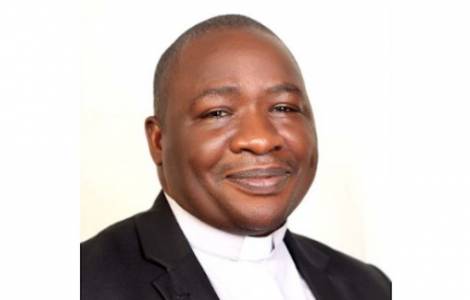
Abuja (Agenzia Fides) - "Insecurity in Nigeria is becoming increasingly serious and widespread, but the Church continues its activities despite the difficulties," Fr. Solomon Patrick Zaku, National Director of the Pontifical Mission Societies (PMS) in Nigeria, told Fides. In an interview with Fides, Fr. Zaku reflects on the difficult situation facing not only the Church but the entire Nigerian population due to the insecurity caused by the actions of numerous armed groups in various areas of the Federation: jihadists of the various factions born from the split of Boko Haram, gangs of Fulani herders, gangs of robbers and gangs dedicated to kidnapping.
Can you describe the insecurity situation in Nigeria?
The situation is tense, and insecurity affects almost all areas of Nigeria. The government is doing its utmost to ensure everyone's safety, but this is not enough, as too many people are still affected by various forms of violence: murders, massacres, violent robberies, forced land occupations, and kidnappings. The Church, especially in areas like the Middle Belt, suffers numerous attacks on its structures (parishes, health centers, schools). Added to this are the kidnappings of priests, men and women religious for ransom. Kidnapping is a phenomenon that affects all Nigerians; religious personnel are therefore not the primary target. Regarding violent attacks on church institutions, one of the most affected regions is Benue State in southeastern Nigeria, where the three dioceses of Makurdi, Gboko, and Katsina-Ala are repeatedly victims of attacks by armed Fulani herders. The attacks are so serious that the president of the Association of Nigerian Catholic Diocesan Priests in the Diocese of Makurdi, Father Joseph Beba, issued a statement last week warning of the ongoing violence against the local population.
At least 50 people, including women and children, have lost their lives, and several homes have been destroyed. The security situation is so precarious that 15 parishes in the Diocese of Makurdi have been forced to close.
How is the Church experiencing these difficulties?
Apart from the most serious cases, such as in Benue State, the Church continues its activities. The people of Nigeria are deeply religious. Despite attacks and violence, the faithful continue to go to church. Looking at the areas affected by the attacks on social media, one might think that the faithful have stopped attending services, but they continue to go to Mass despite the precarious security situation. The Church is doing its best to assist and strengthen people living in uncertain situations.
Are the Pontifical Mission Societies able to work effectively?
The task of the Pontifical Mission Societies is to awaken missionary awareness among the faithful. In Nigeria, we have about fifty dioceses, and in each of them, there is a diocesan director of the Pontifical Mission Societies. And despite the difficulties already mentioned, the work of the Pontifical Mission Societies continues; I am thinking in particular of the Society for Holy Childhood. The words of St. Paul come to mind: "Nothing can separate us from the love of God." And with this awareness, we continue to work. Of course, we are taking precautions to reduce risks; for example, we conduct our activities during the day and avoid traveling on dangerous roads or to high-risk areas. (L.M.) (Agenzia Fides, 7/6/2025)